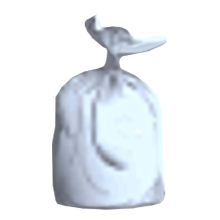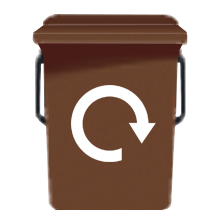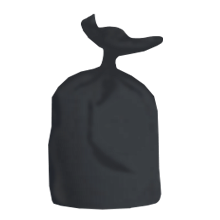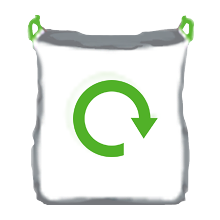What is a coding notice, update your coding notice and frequently asked questions.
What is a coding notice?
A coding notice tells your employer or pension provider your tax-free balance so that they know how much tax to deduct from your wages or pension each time you are paid. If you start a new job, or you start to receive a pension from a former employer or private pension provider, you will need to request a coding notice. This is the document which tells your employer or pension provider how much of your income is tax free due to your allowances and deductions. It's important that you keep the details on your coding notice up to date. If the details on the coding notice are wrong, you will not be taxed correctly and you may end up with a bill or waiting for repayment. If your employer or pension provider doesn't receive your correct coding notice you will have the wrong amount of tax taken from your wages.
If you have only one source of income that is taxed at source by your employer (where the tax is automatically taken out of your wages) and you have no other income source, additional allowances or deductions other than the personal allowance, then you do not need to request a coding notice. Your employer will be contacted directly by us to tell them how much tax to take from your wages.
Other income
This is where we list income which does not have tax taken out at source by your employer. This might include rental or investment income. Some customers will see 'Guernsey underpayment of tax'. This is untaxed income from previous years. For example, when a customer owes less than £20 following an assessment we tell the customer they don't have to pay at that time. Instead it is added to their next coding notice as 'Guernsey underpayment of tax', but the figure represents the unpaid income not the tax owed. So £2 owed in tax would show as £10 of untaxed income. We will collect the underpayment from your wages over the year which is why the figure is added to your coding notice.
Allowances and deductions
This is where we list your allowances and deductions such as your personal allowance, charge of child or mortgage interest.
Annual tax free coding balance
To work out your tax free coding balance we do a sum whereby we take your total other income from your total allowances and deductions. This is your annual tax free coding balance, or the amount your employer will take into consideration before applying tax to your wages. To find your weekly and monthly amount we divide by either 52 (weeks) or 12 (months). These are the figures shared with your employer.
Frequently asked questions
Do I need a coding notice?
- If you are employed in Guernsey, or you are receiving a pension from a previous Guernsey employer or private pension provider, you will need a coding notice.
- You will receive a coding notice every year unless you are only entitled to the personal allowance, you don't claim any deductions (for example mortgage interest) and your only income is from wages or pension that has tax deducted at source. If this is the case, you will not receive a coding notice, but your employer will still be told how much tax to take from your wages.
- It is your responsibility to check the information shown on any coding notice and keep it up to date.
How do I request a coding notice?
- I have just arrived in Guernsey and am going to be employed: You must first register with the Revenue Service. Please fill in the new arrivals form/returning to Guernsey form in the downloads section of this page.. You will then be sent your coding notice in the post.
- I have started a new job or have taken up additional employment: If you change your job or take up an additional job, you will need a coding notice for your new employer.
- My circumstances have changed: For example, you stop working, retire, or change from employment to operating your own business, you may need a new coding notice. Please contact the Revenue Service to discuss your personal circumstances further; either by email to: revenueservice@gov.gg or by phone on 01481 225700. Please quote your Tax Reference Number when contacting us. You will also need the detail of your employer or pension provider and, most importantly, please provide us with a contact number, in case we need to call you back.
What happens with my coding notice?
- Once you have requested a coding notice, it will be sent to you in the post. You should check the details on it are correct.
- Your employer will be sent the details of the tax free allowances you are entitled to (they don't get sent the full details that you see on your part of the coding notice), so that they can deduct the correct amount of tax from your pay.
- Once a year, in November, everyone who is employed or in receipt of a pension from a previous employer or private pension provider (except people who only have the personal allowance as noted above) will receive a coding notice for the following year. Whilst you have a responsibility to keep your coding notice up to date during the year, it is important that you also check the November coding notice to ensure that your employer has the correct information to apply for the new tax year. You will have a short period of time to inform us of any changes before the employer is notified of the amounts for the following year.
What are the current claimable allowances and deductions?
- You can see all current allowances on our monetary values summary, which is available in the downlaods section of this page.
Can I share my unused allowances with my spouse?
- Yes, if you don't think you need all the allowances that you are entitled to for the year, because your income will be less than this figure, you can share the unused amount with your spouse.
- However, please be aware that if you do end up needing the allowances, because you do subsequently have more income than you expected, then your spouse will possibly receive a bill.
- Please think carefully before you share your allowances. If you have shared allowances and then subsequently believe you will need them, you can ask for them to be returned to you at any time.
- Example: You have a personal allowance of £13,025 and don't think you will earn anything during the year. You therefore give all of this to your spouse. However, you later decide to take up employment and you end up earning £10,000 in the year. Your spouse would only be entitled to the unused allowances of £3025, and if they have had the full £13025, they will receive a tax bill of £2000, when their assessment is issued (I.e. they had £10,000 allowances too much and the tax due on this figure at 20% is £2000).
Why can't I see my charge of child allowance on my coding notice?
- If you were eligible for the charge of child allowance in 2023 it will be carried over to your 2024 coding notice. If you are no longer eligable please let us know as you will not be paying enough tax. For more infomation of the charge of child allowance, please see the income tax rates and allowances page..
How does my employer/pension provider use the weekly or monthly figures to calculate my tax?
- The easiest way to explain is by an example:
- In 2023 the personal allowance is £13,025, meaning a tax free allowance of £1,085 per month (£13,025/12).
- Gross monthly pay £2,500
- Less monthly allowance £1,085
- Taxable pay £1,415 x 20% = £283.00 tax
- If you pay into an employers approved pension scheme otherwise known as superannuation, the calculations will be as follows:
- Gross monthly pay £2,500
- Less pension £120
- Less monthly allowance £1,085
- Taxable pay £1,295 x 20% = £259.00 tax
If my circumstances change do I need to notify you?
- It isn't always necessary to advise us of minor changes, unless you want to, but changes we do need to know, are:
- Changes in employment, including additional jobs.
- If you start to receive a personal or occupational pension.
- If you start to receive an old age pension
- A new mortgage or major changes in the amount of interest paid, or if the mortgage is paid off.
- If you get married, enter into a civil partnership or you separate from your spouse.
- If you start, increase or stop paying into a retirement annuity trust scheme (RATS) or personal pension.
- If you have any large changes in investment income.
- If you have a dependant relative allowance in your coding notice and your child leaves higher education.
- If your income is £90,000 or more in 2023 and £80,000 or more in 2024.
Do I need to tell you if my mortgage interest changes?
- If the interest rate for your mortgage has changed, or you have paid off some of it because you have inherited some money, for example, we won't know unless you tell us. This would normally be when you complete your tax return in the following year, but if you leave it until then, it will mean that your tax has been incorrectly calculated throughout the year, and your assessment will show the amount you need to pay or the refund if you've overpaid tax. The following example demonstrates this:
- Your Coding Notice for a year shows mortgage interest of £3,500. However, if you had saved some money, and during the year paid off some of the mortgage which meant the interest paid was only £2,500, you would have had £1,000 too much in your code and would have paid £200 too little in tax (£1,000 x 20% = £200).
- If you hadn't told us about the change as it happened, and left it until you completed your tax return for that year, when you get your assessment you will have a bill for the shortfall of £700, which will need to be paid within 30 days.
- Had you told us during the year, your coding notice would have been changed and you would have paid the tax weekly/monthly as you got paid, and you would avoid the big bill that needs to be paid within 30 days.
- You don't need to tell us if the change is small, but you should let us know if the amounts are large.
Why didn't you update my coding notice when you received my tax return?
- The information that we get from your tax return is not current when we receive it, as it relates to the previous calendar year. You are the only one who knows, for example, what your current mortgage rate is or if you have paid extra into your pension, and so it is up to you to keep us informed and keep your coding notice up to date.
Why have I got a bill when I pay tax through my wages?
- The tax collected from your wages was too low, most probably because there were more allowances in your coding notice than you were entitled to. It could also be because you have other income that wasn't listed in your coding notice; for example, you started to receive a States pension and didn't tell us.
Why am I having tax deducted when my coding notice says '0'?
- A zero coding number means you have no tax-free amounts to be taken from your wage figure before the tax is calculated, not that you don't need to pay tax. If you have a zero coding number then tax will be taken from your salary/pension amount at the rate of 20% from your gross pay.
Why isn't the amount for my occupational/personal pension shown in the income section of my coding notice?
- Guernsey occupational and personal pensions have tax deducted at source, so they don't need to be included, as income, in this part of the coding notice. This section only includes income that doesn't have tax deducted at source, such as your States (old age) pension, rental income or bank interest.













